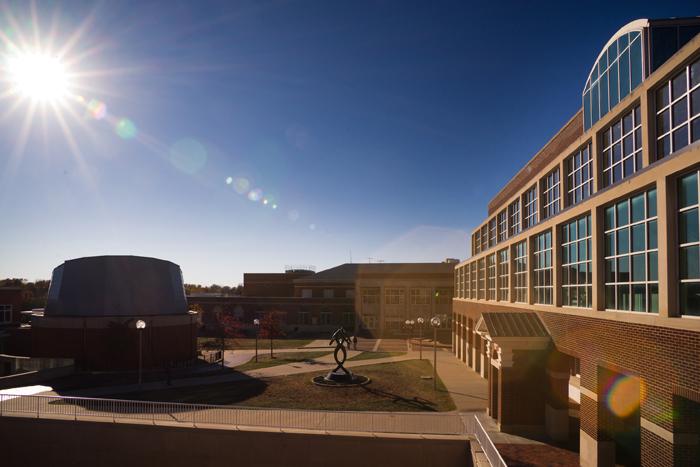Communication Students Prepare For Iowa Caucuses
While some people might dread the upcoming political season, one communication class allows students interested in politics a unique insight into a presidential campaign.
COMM 458: Special Topics—Iowa Caucus 2016, taught by professors Marilyn Yaquinto and Jay Self, aims to cover political communication, campaigning and the process by which the major parties nominate their candidates for president. Students who have completed the course are able to attend the Iowa caucuses Feb. 1 and experience the event firsthand. They will assist the Truman Media Network by covering the event, but also have the opportunity to do political communication field research. Students will produce a research paper and present their results at the Undergraduate Research Conference in the spring.
“It is an excellent way for students to see a major political event and the politicians who participate in them close up,” Self said.
Students are given press passes alongside professional media, which gives them access to most events, including the convention center, where major events are scheduled for the days leading up to caucuses. The convention center is also the home base for media to produce reports to send back to their hometowns or to broadcast to the world.
“When I registered for the class I was excited because I knew it would be a ticket to the Iowa caucuses in February,” Olivia Louderman said. “I never imagined that it would make me want to learn more about all of the strategies and positions involved in the campaigns leading up to the election.”
February will not mark the first time Truman students attend the Iowa caucuses. Self and Yaquinto first created the class in 2011 to better prepare them to cover the event in student media.
“It’s truly a bridge between classroom and field,” Yaquinto said. “It’s something that is Truman-centric, but one with national, even international, relevance.”
This year, Self and Yaquinto plan to emphasize political research and the “rules of engagement” when approaching voters, candidates, campaign staffers and secret service agents. The class also prepares students to understand interactions between political parties and the different perspectives — professional and partisan — that each group brings to the process.

